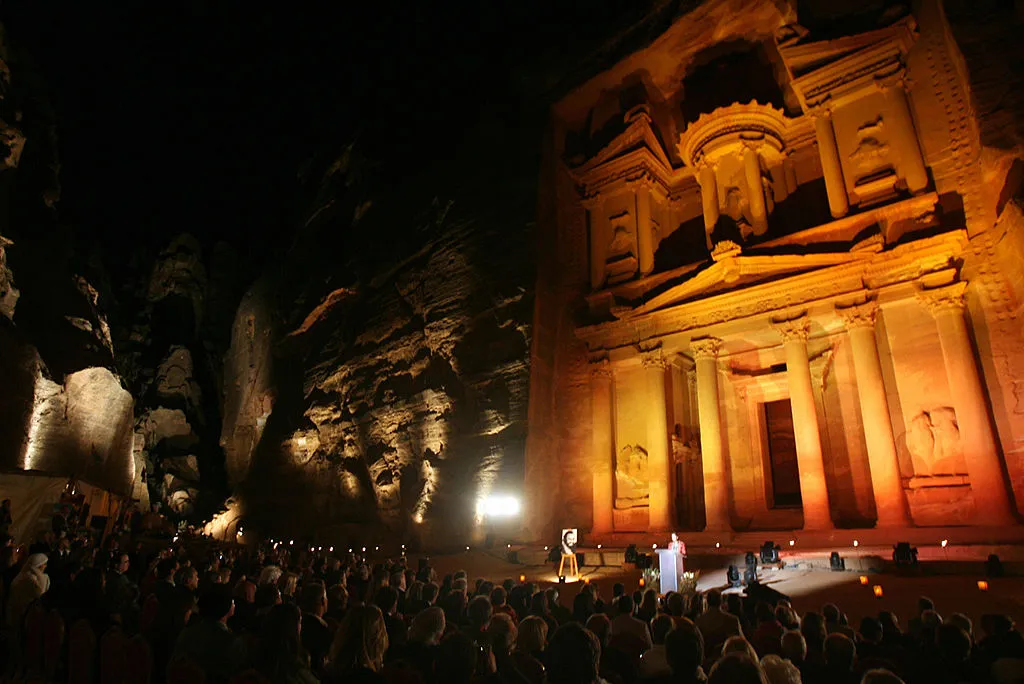
British archaeologists recently made a discovery that sounds like something straight out of an Indiana Jones movie: a secret tomb under the ancient city of Petra in Jordan, according to a press release from the University of St. Andrews.
The archaeologists, led by Richard Bates, a professor at St. Andrews, and Pearce Paul Creasman, the executive director of American Center of Research, were exploring Petra’s iconic Treasury building, which was featured in 1989 blockbuster Indiana Jones and the Last Crusade. (In the film, the building is home to the Holy Grail, though its actual purpose has remained mostly a mystery.)
For decades, archaeologists have known that there were tombs around the structure, but had been unable to fully explore them. Then, this year Bates, Creasman, and the team were approved by the Jordanian government to use ground-penetrating radar on the site. When the survey found the strong possibility of subterranean chambers in the Treasury, they were given permission to excavate. The team found a buried tomb, believed to have been undisturbed for two millennia, containing the remains of 12 skeletons and a collection of grave offerings.
“The discovery is of international significance as very few complete burials from the early Nabataeans have ever been recovered from Petra before,” professor Richard Bates from the University of St. Andrews School of Earth and Environmental Science said in a press statement. “The burials, their goods, and the human remains can all be expected to help fill the gaps of our knowledge in how Petra came to be and who the Nabataeans were,” he added.
One of the skeletons was even holding a chalice that resembled the cinematic Holy Grail. Josh Gates, the host of Discovery Channel’s “Expedition Unknown,” which filmed a soon-to-air TV program on the tomb excavation, said in a press statement, “It was the ultimate moment of life imitating art.”
“When we spotted what looked like a chalice, all of us just froze. It looked nearly identical to the Holy Grail featured in Indiana Jones and the Last Crusade, set in the ancient building directly above the tomb,” he said.
Detailed analysis of the ceramic vessel revealed that it is the top part of a smashed jug that is thought to date back to the first century BC.
“The tomb was most likely built as a mausoleum and crypt in the Nabatean Kingdom at the beginning of the 1st century AD for Aretas IV Philopatris,” Bates said. “Like many tombs in the valley, few remains have ever been found in the tombs due to their subsequent use and reuse over the last two millennia.”

